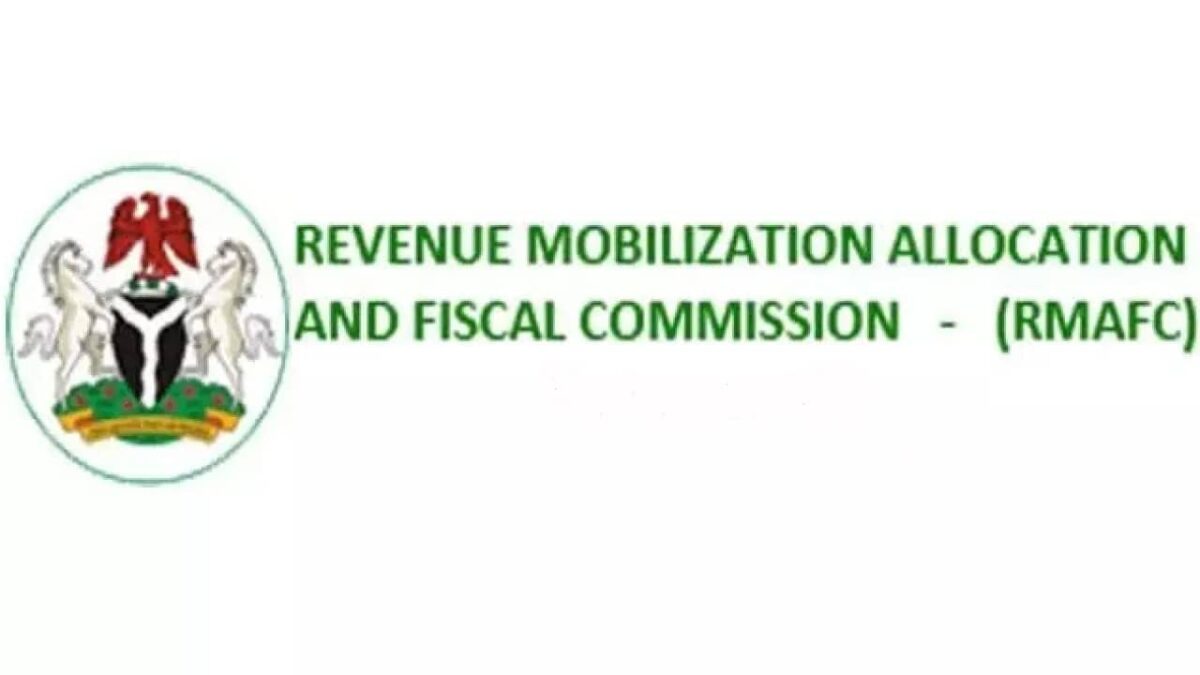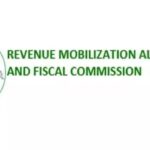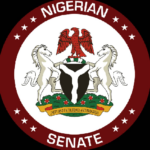The Revenue Mobilisation Allocation and Fiscal Commission (RMAFC) is set to review the revenue sharing formula in the country beginning from this month. This is in response to agitations from a cross-section of Nigerians for more revenue to be allocated to states and local governments.
The Chairman of the Commission, Engr. Elias Mbam, who disclosed this while hosting members of the National Assembly Service Commission led by its Chairman, Engr. Ahmed Khadi Amshi, said the review will first focus on the vertical formula involving the sharing of revenue among the federal, state and local governments. This will then be followed by a review of the horizontal formula between states and local governments.
- ‘Nigeria losing 200,000 barrels of oil daily to vandalism’
- Soyinka to Buhari: Set up Gov’t of National Unity
The review will also include the remunerations for judicial and executive officeholders, which will be subject to approval by National and State Assemblies.
This is a welcome development as not a few Nigerians have expressed reservation with the current revenue allocation formula and have since called for a review.
According to the current formula, the federal government is allocated 52.68 per cent of the revenue accruing to the federation account, the states and local government get 26.72 and 20.60 per cent respectively, with 13 per cent going to the oil-producing states based on the principle of derivation.
The major point to be made here is that Nigerians are desirous of good governance and anything that will boost that will be lauded. However, any revenue allocation review must be in line with the thoughts of the federal government to ensure a seamless implementation.
The revenue should be such that will solve the nation’s long-term challenges as regards revenue allocation.
It should also not be done in isolation of the duties of each tier of government.
The expectation now is for more revenue to be allocated to the states and local governments in order to cope with the growing responsibilities that both tiers of government have to bear in the discharge of their constitutional duties. But that must be done side by side with the devolution of powers from the centre to the federating units of the country for equitable distribution of revenue and development.
Too many things are being handled by the federal government, therefore, the states and local governments need to do more. That will enable the federal government to concentrate on certain issues while allowing the state and local government to be truly relevant.
Earlier this year, President Muhammadu Buhari signed Executive Order 10, which enables the state judiciaries and local governments to access their funds directly without recourse to their state governments.
Also just recently, the Supreme Court ruled that state governors have no right to dissolve and appoint local government executives.
All these developments are meant to provide the state and local governments with the means to function as effectively as they should in order to meet the expectations of Nigerians.
In this regard, the new revenue formula should as of necessity reflect these developments.
For the state and local governments on whose behalf Nigerians have been clamouring for a review of the revenue formula, it is expected of them to take a keen interest and indeed make constructive presentations to the RMAFC review exercise. They must not wait for the exercise to be concluded and then start complaining. The time to make their views known is now.
We must also mention that in anticipation of a favourable outcome of the review, the states and local governments should begin now to show justification on why indeed they deserve this attention. The way to go in this regard is to embark on drastic cutting down of areas of wastages in their operations. They should also broaden their internal revenue-generating drive so as to complement what they will get from the federation account.
The Revenue Mobilisation Allocation and Fiscal Commission (RMAFC) is set to review the revenue sharing formula in the country beginning from this month. This is in response to agitations from a cross-section of Nigerians for more revenue to be allocated to states and local governments.
The Chairman of the Commission, Engr. Elias Mbam, who disclosed this while hosting members of the National Assembly Service Commission led by its Chairman, Engr. Ahmed Khadi Amshi, said the review will first focus on the vertical formula involving the sharing of revenue among the federal, state and local governments. This will then be followed by a review of the horizontal formula between states and local governments.
The review will also include the remunerations for judicial and executive officeholders, which will be subject to approval by National and State Assemblies.
This is a welcome development as not a few Nigerians have expressed reservation with the current revenue allocation formula and have since called for a review.
According to the current formula, the federal government is allocated 52.68 per cent of the revenue accruing to the federation account, the states and local government get 26.72 and 20.60 per cent respectively, with 13 per cent going to the oil-producing states based on the principle of derivation.
The major point to be made here is that Nigerians are desirous of good governance and anything that will boost that will be lauded. However, any revenue allocation review must be in line with the thoughts of the federal government to ensure a seamless implementation.
The revenue should be such that will solve the nation’s long-term challenges as regards revenue allocation.
It should also not be done in isolation of the duties of each tier of government.
The expectation now is for more revenue to be allocated to the states and local governments in order to cope with the growing responsibilities that both tiers of government have to bear in the discharge of their constitutional duties. But that must be done side by side with the devolution of powers from the centre to the federating units of the country for equitable distribution of revenue and development.
Too many things are being handled by the federal government, therefore, the states and local governments need to do more. That will enable the federal government to concentrate on certain issues while allowing the state and local government to be truly relevant.
Earlier this year, President Muhammadu Buhari signed Executive Order 10, which enables the state judiciaries and local governments to access their funds directly without recourse to their state governments.
Also just recently, the Supreme Court ruled that state governors have no right to dissolve and appoint local government executives.
All these developments are meant to provide the state and local governments with the means to function as effectively as they should in order to meet the expectations of Nigerians.
In this regard, the new revenue formula should as of necessity reflect these developments.
For the state and local governments on whose behalf Nigerians have been clamouring for a review of the revenue formula, it is expected of them to take a keen interest and indeed make constructive presentations to the RMAFC review exercise. They must not wait for the exercise to be concluded and then start complaining. The time to make their views known is now.
We must also mention that in anticipation of a favourable outcome of the review, the states and local governments should begin now to show justification on why indeed they deserve this attention. The way to go in this regard is to embark on drastic cutting down of areas of wastages in their operations. They should also broaden their internal revenue-generating drive so as to complement what they will get from the federation account.
It is also hoped that the new revenue formula will be such that wastages will be eliminated at all tiers of government.

 Join Daily Trust WhatsApp Community For Quick Access To News and Happenings Around You.
Join Daily Trust WhatsApp Community For Quick Access To News and Happenings Around You.


